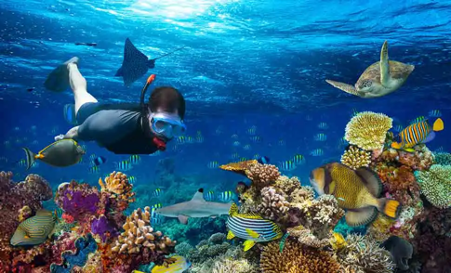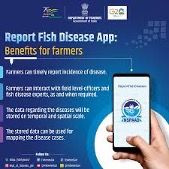In Ranchi, a startling discovery has shaken the local community, as more than 8,000 fish were found lifeless in a dam, prompting swift action by the fisheries department. District Fishery Officer, Arup Kumar Chaudhary, revealed that the deceased fish, ranging from 500 grams to 1 kilogram in weight, were discovered in four cages meant for fish rearing at Getalsud dam.
In response to this concerning incident, State Agriculture Minister Badal Patralekh wasted no time and ordered a comprehensive investigation on Saturday evening. Badal has instructed the department secretary to initiate the probe promptly and deliver a report as soon as possible.
Chaudhary and his team are determined to unravel the mystery behind this mass fish mortality. He articulated that there could be various factors contributing to this unfortunate event, such as oxygen depletion, diseases, or pollution. The prevailing suspicion leans towards a lack of oxygen or a possible disease outbreak as the root cause. However, a conclusive determination can only be reached after their investigative efforts are concluded.
According to Chaudhary, maintaining an oxygen level of at least five milligrams per litre in the water is essential for the survival of fish. If this level drops below three milligrams per litre, it can result in fish fatalities. He reassured the public that approximately 300 fish cages in the nearby Maheshpur area, adjacent to the affected site, housing around one and a half tonnes of fish, remain unharmed by this incident.




 Indian zoologists have unearthed two previously unknown species of spiny clam shrimps thriving in dry rock pools within Karnataka and Goa. These newly identified species exhibit genetic distinctiveness from other clam shrimps found in India, shedding light on crucial insights for local conservation efforts.
Indian zoologists have unearthed two previously unknown species of spiny clam shrimps thriving in dry rock pools within Karnataka and Goa. These newly identified species exhibit genetic distinctiveness from other clam shrimps found in India, shedding light on crucial insights for local conservation efforts.
 To fortify the farmer-based disease reporting system of aquatic animal diseases across the country, the Ministry of Fisheries, Animal Husbandry, and Dairying has introduced the Report Fish Disease (RFD) App. This innovative application has been developed by ICAR-NBFGR under the National Surveillance Programme for Aquatic Animal Diseases (NSPAAD), funded through the Pradhan Mantri Matsya Sampada Yojana by the Department of Fisheries, Ministry of Fisheries, Animal Husbandry, and Dairying, Government of India.
To fortify the farmer-based disease reporting system of aquatic animal diseases across the country, the Ministry of Fisheries, Animal Husbandry, and Dairying has introduced the Report Fish Disease (RFD) App. This innovative application has been developed by ICAR-NBFGR under the National Surveillance Programme for Aquatic Animal Diseases (NSPAAD), funded through the Pradhan Mantri Matsya Sampada Yojana by the Department of Fisheries, Ministry of Fisheries, Animal Husbandry, and Dairying, Government of India.


